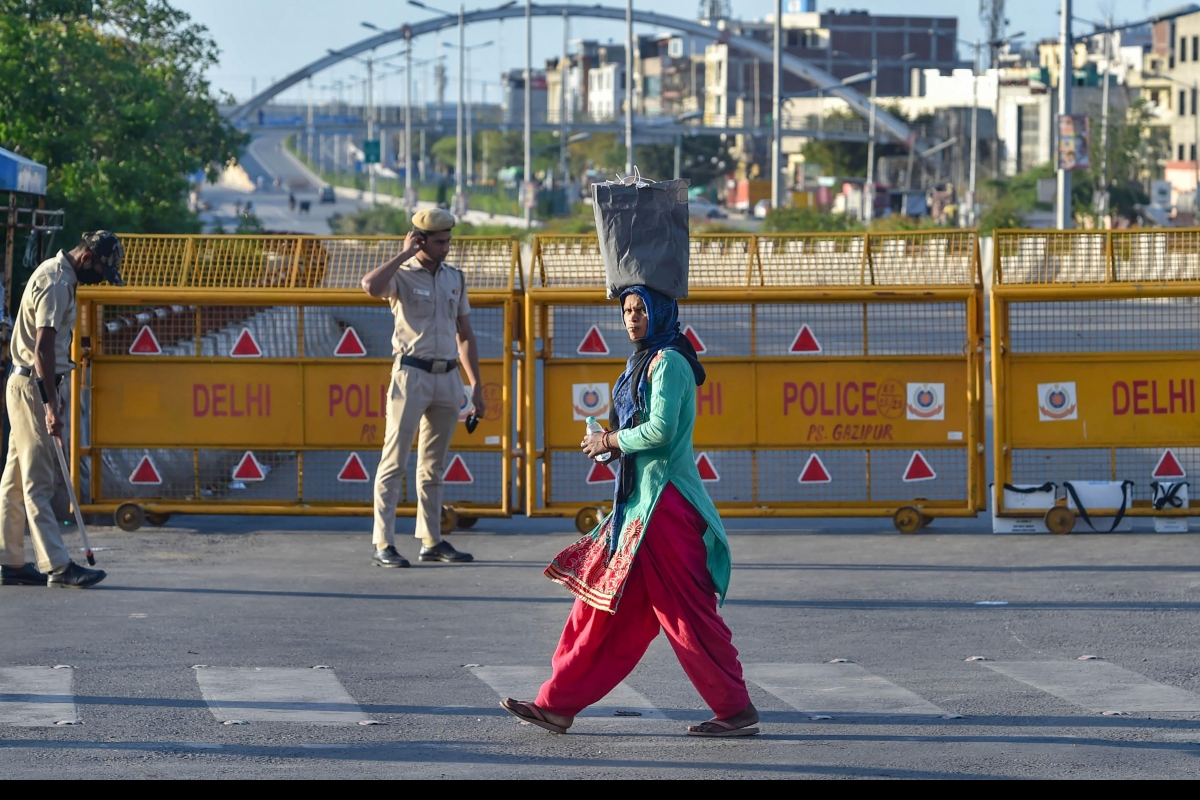
Lockdown 4.0 is more relaxed; here's what is allowed and what is not
The Ministry of Home Affairs (MHA) has issued guidelines of COVID-19 lockdown 4.0 today (May 17). The third nationwide lockdown extension was effective between May 4-May 17. The MHA has issued guidelines for lockdown 4.0 which will continue till May 31 across the country with significant relaxations.

The Ministry of Home Affairs (MHA) has issued guidelines of COVID-19 lockdown 4.0 today (May 17). The third nationwide lockdown extension was effective between May 4-May 17. The MHA has issued guidelines for lockdown 4.0 which will continue till May 31 across the country with significant relaxations.
According to the Home Ministry, the delineation of the red, green, and orange zones will be decided by the respective state and union territory (UT) governments, after taking into consideration the parameters set by the Ministry of Health and Family Welfare.
Use of Aarogya Setu app: The district authorities have been asked to advise all individuals to install the Aarogya Setu app on compatible mobile phones and to regularly update the health status. This will facilitate a timely provision of medical attention to those people who are at risk of catching the COVID-19 infection.
RELATED NEWS: ₹20 lakh crore stimulus package by Centre: Here’s the break-up
What is not allowed till May 31:
- All domestic and international air travel of passengers, except for domestic medical services, domestic air ambulance, and for security purposes or purposes as permitted by Ministry of Home Affairs, will remain prohibited throughout the country.
- All cinema halls, shopping malls, gymnasiums, swimming pools, entertainment parks, theatres, bars and auditoriums, assembly halls and similar places, will continue to remain closed throughout the country
- All metro rail services will remain closed throughout the country. The Delhi Metro Rail Corporation has issued a statement that in light of the extension of lockdown announced by the government, Delhi Metro services will remain closed for commuters till May 31
- Persons above the age of 65 years, persons with co-morbidities, pregnant women, and children below the age of 10 years, have to stay at home till May 31, except for essential and health purposes
- Schools, colleges, educational/coaching institutions will remain closed in all zones.
- During the extended lockdown, the night curfew will continue to remain in force on the movement of individuals, for all non-essential activities, between 7 pm and 7 am.
- All social, political, religious functions, and places of worship will remain shut during extended lockdown
- In containment zones, intensive contact tracing, house to house surveillance, and other clinical interventions will be conducted. In such zones, movement of people will be controlled and only medical emergencies or maintaining essential goods/services will be allowed.
What is allowed
- Sports complexes and stadia will be permitted to open, but spectators will not be allowed
- The inter-state movement of passenger vehicles, buses will be allowed with mutual consent of states involved during lockdown 4.0
- All shops, except those in containment zones and the shopping malls, will be allowed to open from May 18 with staggered timings during lockdown 4.0
- All shops shall have to ensure a six feet distance among customers and will not allow more than five people at one time
- The states can permit all other activities outside the containment zones that are other than the limited number of activities prohibited nationally.
- Online teaching and learning is permitted and will be encouraged.
- All states and UTs will allow inter-state and intra-state movement of nurses, medical professionals, para medical staff, sanitation personnel, and ambulances without any restriction
- All states and UTs will allow inter-state movement of goods/cargo, including empty trucks.
- All other activities will be permitted except those which are specifically prohibited under these guidelines. However, in the containment zones, only essential services will be allowed. Further, states and UTs may prohibit certain other activities in various zones or impose restrictions, based on their assessments.

